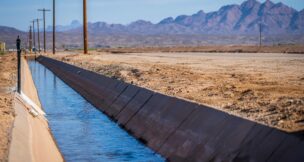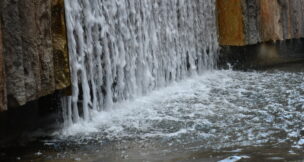New Kyl center at ASU steps in to resolve water rights conflicts
Rachel Leingang//September 1, 2015//
New Kyl center at ASU steps in to resolve water rights conflicts
Rachel Leingang//September 1, 2015//
A water policy center still in its infancy is trying to tackle one of the state’s largest outstanding water rights issues. The Kyl Center for Water Policy opened last November...








































